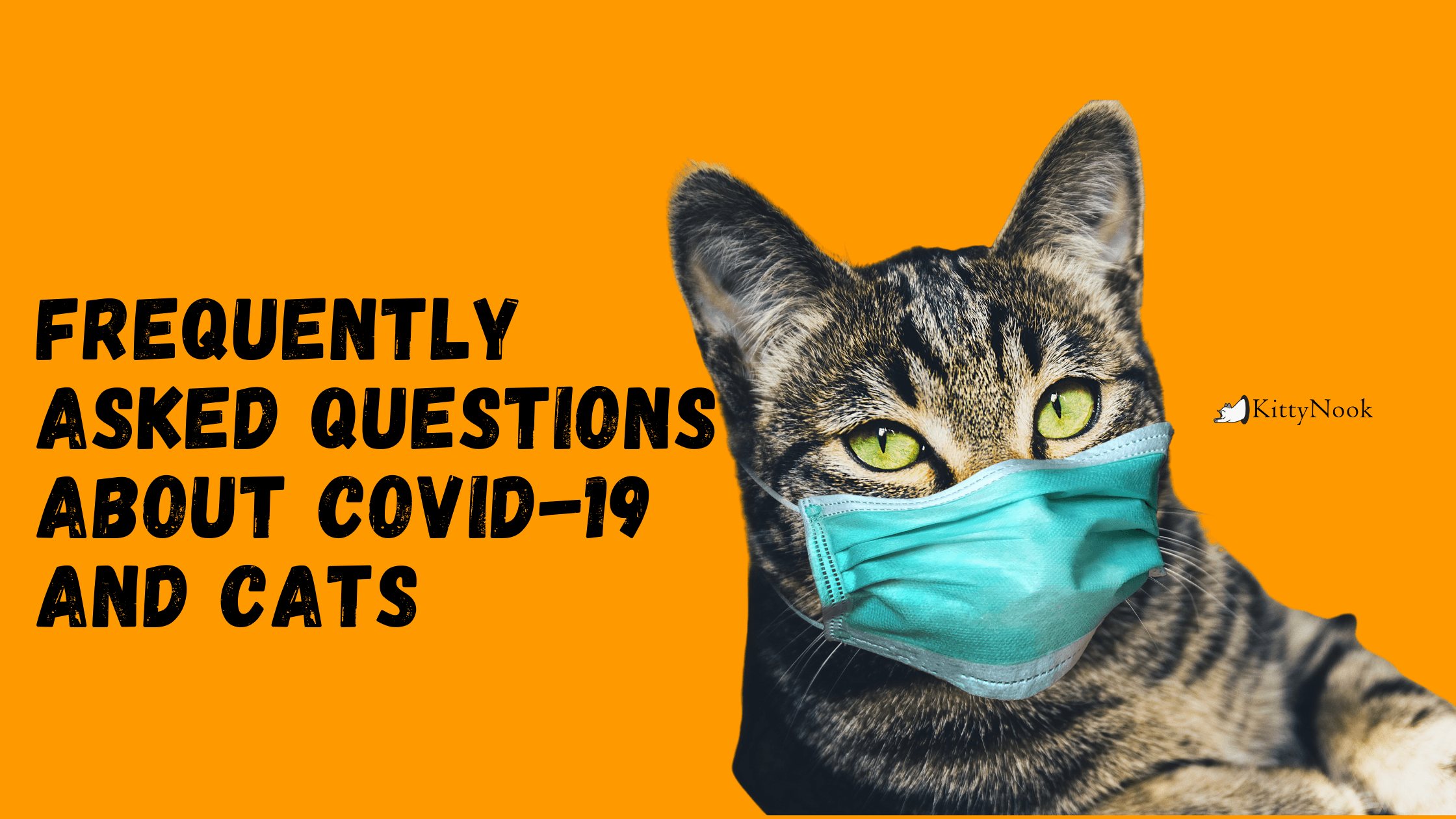While coronavirus disease 2019 (COVID-19) primarily spreads from one person to another, reports show that it can also spread from people to animals.
First of all, what Is COVID-19?

COVID-19 is an infectious disease caused by coronavirus. Coronaviruses are a family or group of viruses that have different effects on the body: some trigger cold-like symptoms in humans, others trigger illnesses in animals. In addition, some coronaviruses infect just animals. While the origin is unknown, the virus that causes COVID-19 is believed to have started in an animal, then spread to humans, and later spread between people.
COVID-19 and Cats: FAQ

I know that cat owners want to know the best ways to care for themselves and their feline friends during this difficult and confusing time. I think cat lovers need reliable details based on scientific evidence to better understand this ongoing phenomenon.
It is important to note that this blog is based upon the available information on the Internet. The best source of updated information in this regard is still the US Centers for Disease Control and Prevention (CDC) website, which has comprehensive answers and explanations to many inquiries related to COVID-19, including the best practices that pet owners should do.
Currently, there is no evidence of human transmission from cats, so there is no need for proprietors to do anything that would affect the welfare of their cats (like abandoning them or giving them back to an animal shelter) even if a cat has been diagnosed with COVID-19.
How susceptible are domestic cats to COVID-19?

Domestic cats can be infected by SARS-CoV-2, which causes COVID-19, although they are not highly susceptible. This is based upon identifying three naturally active infections in cats, the identification of antibodies against the infection in some cats in China, and the results of research in which cats were experimentally infected with SARS-CoV-2.
In April of 2020, The CDC and the USDA National Vet Services Laboratories (NVSL) confirmed the first cases of SARS-CoV-2 infection in two cats from New York. These are the first pets in the USA to test positive for feline coronavirus or SARS-CoV-2.
How does a cat get infected with SARS-CoV?

Regarding the potential sources of SARS-CoV-2 infection, the available information tells us that a cat infected in Belgium got the virus from its owners. In the research in which felines were experimentally infected with SARS-CoV-2, results suggested that cat-to-cat transmission is possible. Based upon these findings, transmission from people to cats and cat-to-cat seems likely.
What is the effect of COVID-19 in cats?

The severity of disease triggered by SARS-CoV-2 infection in cats is uncertain. Cats appear to be at least only mildly susceptible to COVID-19. The two cats from New York city each only had minor respiratory illness and completely recovered. Furthermore, the experimentally infected felines did not exhibit evidence of the virus in their lungs but rather in their upper respiratory airways only. They also did not develop signs of illness.
Can cats become ill enough to pose a threat to people?

There is currently no proof that cats can transmit SARS-CoV-2 to people, and the severity of the disease that the infection causes in cats are still nebulous. The conditions (both natural and experimental) of cats recorded so far only had relatively moderate symptoms.
It is still not known whether SARS-CoV-2 will be transmissible from cats to the human population, but the studies into this are ongoing. However, it is valuable to note that there exist other viral respiratory illnesses that cats are susceptible to that they can not transfer to people.
Who will take care of my cat if I get COVID?

Let us say a cat owner is diagnosed with COVID-19, the CDC recommends that that person quarantine themselves. They should leave the care of their cat(s) to other people at home. If living alone, the recommendation is to lessen contact with the cat as much as possible. The COVID-infected person must wash their hands meticulously before and after interacting with the cat and its litter box (washing hands often is a good concept anyway). And lastly, do not allow felines to lick the face or breathe close to the face.
The process of momentarily rehoming a cat in COVID-19 positive households may expose cats to other infections and would likely cause stress in the rehomed cat. Given that it is presently unclear how much stress and anxiety might affect a cat's ability to fight off COVID-19, it is much more reasonable to let the cat stay at home rather than rehome it.
Conclusion
Research conducted at the Utrecht University of the Netherlands shows that felines are more likely to have coronavirus infection the more they spend with their infected owners, mainly if they share a bed.
The research also said that because the infection rate in pets with owners was higher than in those at the sanctuary and even feral cats, humans are more likely to spread the virus to animals than the other way around, something previous studies have also shown.
In summary, here are the things that we know so far:
- The infection that creates COVID-19 can spread from humans to animals during close contact.
- The threat of a pet spreading COVID-19 to people is very low.
- There are cases where an animal can get a severe disease from infection with the virus, but this is incredibly rare.





















